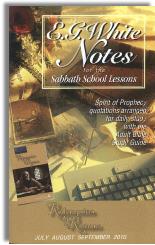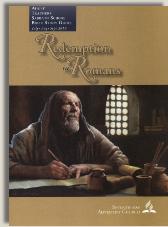|
||||||||||||||
Commentary on "Justification and the Law"
Day 3: Monday, July 26, 2010 - Grace or Debt?
Overview
Here is the passage that well summarizes what God’s grace is:
For by grace you have been saved through faith. And this is not your own doing; it is the gift of God, not a result of works, so that no one may boast. (Eph. 2:8-9 ESV)
The suggested reading for today is Romans 4:6-8 but we should begin with verse one if we are to get a clear understanding of what God’s grace is in this passage.
Observations
The lesson has some good statements about the meaning of God’s grace but does us an injustice by skipping over verse one. The phrase; ‘What then shall we say’ in Romans 4:1 shows that chapter four and the example of Abraham, who did not have the law, is how and where Paul explains what he means by ‘we uphold the law’ of Romans 3:31:
Do we then overthrow the law by this faith? By no means! On the contrary, we uphold the law. What then shall we say was gained by Abraham, our forefather according to the flesh? (Rom. 3:31-4:1 ESV)
Since Abraham lived long before the law was established, God’s grace towards Abraham obviously had nothing to do with him keeping the law. Abraham was a sinner just like each of us, yet his works of the flesh could never pay off his debt of sin. Instead, he believed God and it was counted as righteousness, verses 2 and 3. Chapter three declares all men as unrighteous. None are able to meet God’s righteous standard, not even as expressed in the law.
Paul then directs our attention to why the law is upheld:
Now to the one who works, his wages are not counted as a gift but as his due. And to the one who does not work but believes in him who justifies the ungodly, his faith is counted as righteousness, (Rom. 4:4-5 ESV)
Paul upholds the law for the purpose of pointing to the only one who could meet the righteous requirements of God. God’s grace towards us, John 3:16, was displayed by his giving of Jesus Christ who became the propitiation (took our place) for our sins. For fulfillment, the law demands a perfect righteous Messiah.
Even King David who utterly failed to keep the law knew of God’s grace as expressed in these words quoted by Paul:
"Blessed are those whose lawless deeds are forgiven, and whose sins are covered; blessed is the man against whom the Lord will not count his sin." (Rom. 4:7-8 ESV)
Summary
- God’s grace is best expressed in that while we were yet sinners he so loved us that he gave us Jesus who willingly died on the cross in payment for our debt of sin, conquered the grave and was resurrected three day later in victory.
- Anything we attempt to add to this expression of God’s grace is a non-Gospel, Gal. 1:6-9. Anything we attempt to add such as our works or adherence to the Mosaic Law is something other than God’s grace.
Copyright 2010 BibleStudiesForAdventists.com. All rights reserved. Revised July 12, 2010. This website is published by Life Assurance Ministries, Glendale, Arizona, USA, the publisher of Proclamation! Magazine. Contact email: BibleStudiesForAdventists@gmail.com.
The Sabbath School Bible Study Guide and the corresponding E.G. White Notes are published by Pacific Press Publishing Association, which is owned and operated by the Seventh-day Adventist church. The current quarter's editions are pictured above.
Official Adventist Resources
Standard Edition Study Guide Week 5
Teacher's Edition Study Guide Week 5
Easy Reading Edition Study Guide Wk 5
Search the Complete Published Ellen G. White Writings


